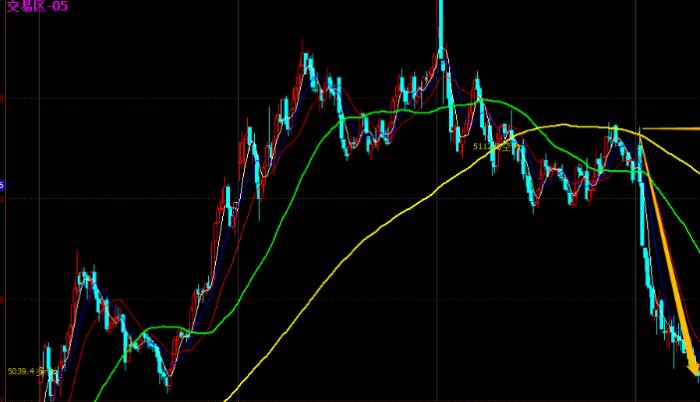It's time for the weekly article again. I have been writing articles for 9 years, and if you count the previous company, it's almost 14 years in total. Over these years, I have written technical analysis, fundamental analysis, and macro perspective interpretations. However, with the increase of work responsibilities, I can no longer look at charts and technical analysis every day, so I gradually withdrew from topics that require a lot of time observation and focus on technical details, and put more emphasis on the analysis of the economic environment, long-term industry selection, and investment mentality.
Today, let's talk about a topic I think is very important: capital preservation.
Why do I bring up this topic? Because when I took my child to swimming class at 7:30 this evening, I chatted with another friend who was also taking his child to the class, and we talked about this topic. He said that many of his clients often ask the first question when investing: Can this product guarantee the preservation of capital?
In the traditional financial investment concept, in Australia, basically only government bonds and bank deposits of up to 500,000 can be considered capital preservation, and all other investments carry risks. And everyone knows in investment, high returns inevitably require taking high risks. If you want to preserve capital without risk, you can basically only choose government bonds and fixed deposits.
However, my friend deeply triggered my thinking in another way. He said that in the concept of most people, the capital preservation is the money they invest. But in fact, in investment, in life, and even in our lives, we need to preserve capital all the time, and this capital is not money. It is our principles, our bottom lines, our values, and our sense of responsibility.
Do you think I'm talking too much? What does this have to do with investment? It does! And it's very related.
In the financial market, our choice of capital preservation means we don't like too much financial risk. And just now I mentioned the principles of capital, the bottom line of capital, the values of capital, and the sense of responsibility of capital, which can actually help us make completely different choices in investment.
For example, with the same 100,000 Australian dollars, you can choose to buy government bonds, or you can choose to buy those real estate bridge loan funds. You can choose to invest in simple and plain manufacturing, or you can choose to invest in seemingly glamorous P2P products.When we make every choice, we are actually making a decision about whether to preserve our capital.
At the Berkshire Hathaway annual shareholders meeting in 2021, some investors questioned that Warren Buffett's investment strategy was too conservative at that time. However, Cathie Wood, who became famous for heavily investing in Tesla in 2020 and whose technology stock fund was once thriving, seemed to be on the verge of surpassing Buffett and becoming the new stock market god. But just two years later, time gave her a huge slap in the face. Wood's fund plummeted by 40%, while Buffett's fund eventually surpassed Wood in terms of return rate with a steady and mature pace, and far outpaced her.
I'm not saying that Wood's strategy is bad here, I just want to illustrate that if you were a follower of Buffett before, but when you see another fund manager with outstanding performance in a year or even a few years, would you waver, would you doubt your original decision? Then I have to ask another question: what is the driving force behind our decision to invest in a product or a fund? Is it just because the person says the return rate is high? Is it just because the return rate on the printed document is tempting? If you make investment decisions based solely on these factors, the possibility of failure in the future is very high.
This is like young people falling in love. The girl is attracted by the luxury car the guy drives and the expensive clothes he wears. However, she forgets to understand the truth behind it.
Any investment, before making a decision, we need to determine whether this stock, this product, this fund, conforms to our "capital". If you choose those companies or fund managers who can do anything for the sake of returns and making money without any bottom line, responsibility, even if the packaging is good, in my view, it is no longer capital preservation.
In fact, we all know the bottom line and understand that once we cross the bottom line, we will feel uneasy, worried, and insecure. In fact, when you have this feeling, it is actually a very clear signal of capital loss.
Many times, if you are only obsessed with finding clear signals on technical charts and technical indicators to increase the return rate and the probability of capital preservation, it is actually difficult to maintain in the long run. After so many years of failure, lessons, and short-term successful stimulation, I have a deeper understanding that in investment, and not only in investment, but also in doing everything, we need to preserve our capital.
When you ask this question: Can this product guarantee capital preservation? In fact, what you lack is not the capital of money, but you lack a sense of security, you are not sure where the money will go. You want to make money, but you are afraid of breaking your bottom line, your values, and you are hesitating whether to give up something in order to make money.Undoubtedly, the answer is no. Keep in mind one thing: if you give up your "foundation" for the sake of high returns, such high returns will surely be fleeting.
Over the course of several decades, Buffett has proven with facts that when you hold on to your foundation, you will also reap the same rewards.
Therefore, when you choose to invest, please opt for products and sectors that can help you "preserve your capital."





























